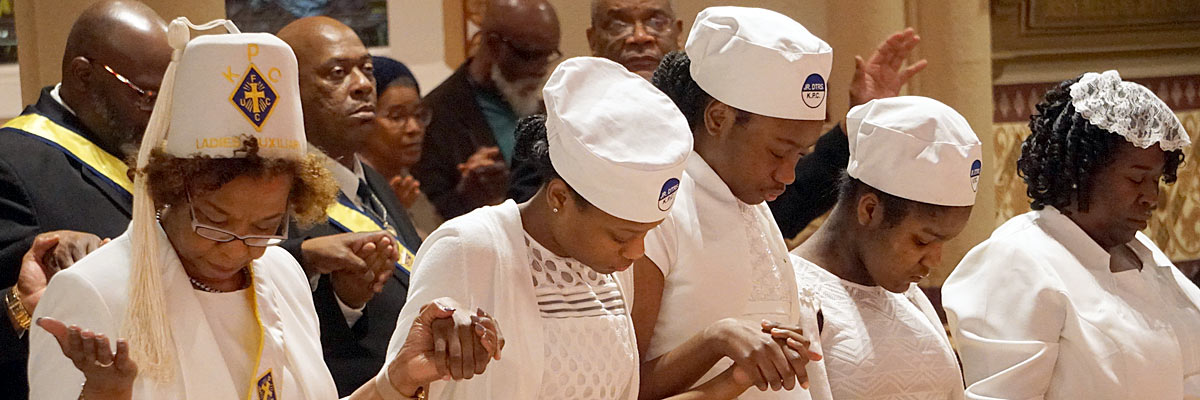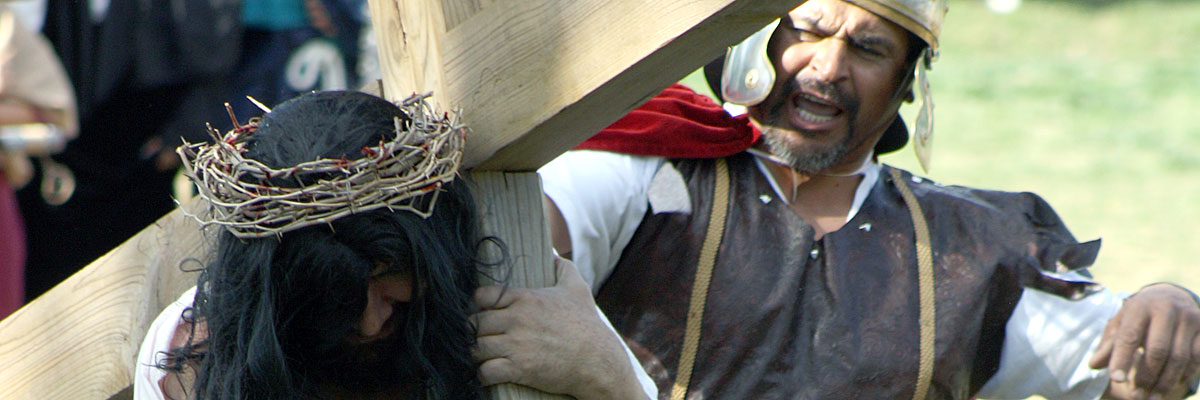Official Website of the
Catholic Diocese of Little Rock
Catholic Charities Summer Institute Mass 2025
Published: June 25, 2025
Bishop Anthony B. Taylor preached the following homily at St. John Center in Little Rock June 25, 2025.

Bishop Taylor
There is a big difference between the English Common Law system on which our American legal system is based and the Roman Law system on which Church law and the modern Italian legal system is based.
Our law states the minimum, below which you are in violation of the law. Our system does not recognize a higher law. Roman law describes the way things ought to be, below which you are in non-compliance with the law.
"...we do not have the right to prevent people from exercising their God-given right to migrate when circumstances so require."
Even the words, violation and non-compliance reflect different legal cultures and the practical consequences are enormous. For instance, in America running a red light is a punishable traffic violation, even in rural areas where there are no cars around, we wait until the light turns green. Italians think that is crazy. In rural areas they stop, look to see if any other cars are coming, and then if not, they proceed through the intersection even while the light is still red. In Italy, at least in theory, all you have to do is show that you didn’t violate the law’s purpose (preventing accidents) when you failed to comply with its provisions.
We have a similar clash between two legal cultures in today’s Gospel. The Pharisees are like us Americans: they understood the law to state the minimum, below which you are in violation of the law. So, when they see Jesus’ disciples picking heads of grain to eat, they accuse them of violating the law forbidding work on the Sabbath.
By contrast, Jesus insists that achieving the law’s purpose is more important than the letter of the law. The purpose of the Sabbath was to prevent exploitation of workers and self-imposed workaholism by making everyone take a day off and to remind us that we belong to God (who deserves our worship) and not to our boss (who does not deserve our worship). So when Jesus says that the Sabbath was made for man, not man for the Sabbath, what he means is that in this case, his disciples did not violate the purpose of the Sabbath even when doing something that was technically forbidden on the Sabbath.
These disciples were in no danger of becoming workaholics (they were unemployed) nor of forgetting that they were God’s servants — after all, they were following Jesus. Jesus describes his approach elsewhere as obeying the spirit of the law — the purpose of the law — rather than the letter of the law. In other words, there is a higher law before which human laws ultimately lose their binding force and Roman law takes this into account. In the case of rushing a bleeding child to the hospital, even we Americans know to obey a higher law — saving lives — and if no other cars are coming, we go through the red light to get the kid to the hospital in violation of a merely man-made traffic regulation.
That case is obvious, but there are many more cases where the same principle applies, for example on the topic of unauthorized immigration. Some Americans cry, “It is the law, it is the law, it is the law” forgetting that there is a higher law before which unjust laws lose their binding force. Parents have a God-given obligation to protect and provide for their children, and if they cannot do so in their place of origin, they have a God-given right — even obligation — to migrate to some place where they are able to do so.
Church teaching is that beyond a certain point, laws which unjustly to prevent people from exercising their God-given rights eventually lose their binding force. Why? Because there is a higher law. Think of all those people, children and adults, who crossed our southern border to get their family out of desperate circumstances and now face deportation. We have the right to regulate the migration of people for the common good, facilitating migration and protecting migrants from those who would exploit them, but we do not have the right to prevent people from exercising their God-given right to migrate when circumstances so require. As we read in today’s Gospel, “the Son of Man is Lord of the Sabbath,” and as we read elsewhere, “the Sabbath” — or any other law — "was made for man, not man for the Sabbath.”









